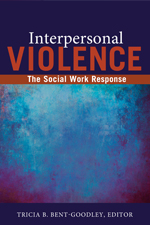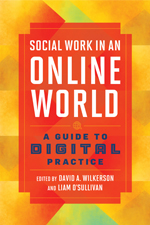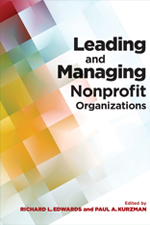Interpersonal Violence: The Social Work Response, edited by Tricia B. Bent-Goodley, proposes that it is essential for social workers to understand the evolving and persistent landscape of interpersonal violence, including concurrent victimization, overlapping patterns, and intersections. The book encourages a three-pronged approach, one that is trauma informed, culturally responsive, and survivor centered.
Covering a wide range of environments in which social workers work with IPV, contributors offer a variety of innovative methods for working with victims, including constructed agency, antioppressive frameworks, community engagement, and work with abusive persons.
In Self-Care in Social Work, by Kathleen Cox and Sue Steiner, the reader is taught how to approach individually oriented self-care through the development of self-awareness, self-regulation, and self-efficacy. At the organizational level, readers are guided through a process of learning about areas of match and mismatch between themselves and their agency structure and culture. The book is timely in that the economic downturn has put pressure on agencies to do more with less, which ultimately leads to stress.
Burnout, compassion fatigue, and vicarious trauma are topics that students, instructors, practitioners, and administrators are concerned about. A practical guide to stress management and approaches to self-care, this book includes narratives gathered from both students and practitioners in the field. It is an excellent resource for social workers, counselors, and mental health professionals in education.
Prior to 2020, the field of social work was limited in its adoption of digital practice. However, with the onset of the COVID-19 pandemic, traditional, in-person service delivery was dramatically interrupted. Previously at a crossroads, the field is now experiencing a seemingly unstoppable shift toward modern technology-mediated forms of delivery.
Social Work in an Online World, edited by David A. Wilkerson and Liam O’Sullivan, addresses this shift and charts the changing landscape from analog to digital practice in varied client systems, system needs, and system levels (micro, mezzo, and macro). Going beyond online mental health service, which is largely individually focused and synchronously delivered, the authors offer a map of digital social work practice that can be expanded to include support, identity, community action, education, and psychoeducation.
In Leading and Managing Nonprofit Organizations, editors Richard Edwards and Paul Kurzman have assembled over a dozen university faculty and field experts, providing best practices and thought leadership for turbulent times.
Core leadership skills are brought into focus through the lens of the competing values framework, a metatheoretical model of organizational and managerial effectiveness: boundary-spanning skills, such as promoting nonprofits to the media and public, managing public policy advocacy, and developing a successful fundraising program; and human relations skills, including managing human resources, managing meetings, and cultivating a culture of diversity, equity, and inclusion, among others.
__________________________________________
For more information about all NASW Press titles, including books, eBooks, reference works, journals, brochures, and standards, visit the NASW Press website. If you have questions, please send an email to NASWPress@BrightKey.net or call 1-800-227-3590.
__________________________________________
You Might Also Be Interested In . . .
Registration is now open for the 2023 Virtual Forum: “Environmental Justice: Through the Social Work Lens.” This exciting event will explore how social workers play an important role in environmental justice and in creating a more sustainable world. Join us for this two-day virtual event, which will be held November 1–2, 2023.









